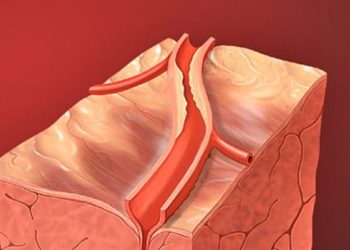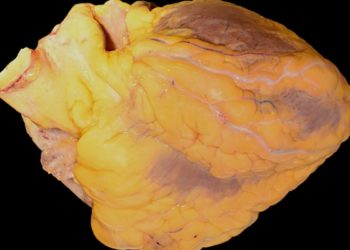The ICAP trial: Colchicine in acute pericarditis [Classics Series]
1. Colchicine has been commonly used in the treatment of inflammatory conditions, including gout and serositis.
2. This study demonstrated that colchicine, in addition to standard therapy, significantly reduced the risk of incessant or recurrent pericarditis compared to placebo.
3. There were no significant differences between colchicine and placebo in the risk of gastrointestinal side effects.
Original Date of Publication: October 2013
Study Rundown: Colchicine was originally extracted from the autumn crocus plant, which had been used in ancient times to treat swelling. Colchicine acts by inhibiting mitosis and neutrophil motility and activity, thereby generating an anti-inflammatory effect. It has long been used in the treatment of gout and other inflammatory conditions, with autumn crocus extract first documented as gout therapy in the first century AD. Several trials supported the use of colchicine in treating and preventing acute pericarditis, though these studies were small and nonrandomized.
The Investigation on Colchicine for Acute Pericarditis (ICAP) trial sought to determine the effects of colchicine in treating acute pericarditis. Patients treated with colchicine experienced significantly lower rates of incessant or recurrent pericarditis as compared with those taking placebo. The rates of adverse events and gastrointestinal upset were similar in the two groups.
Click to read the study in NEJM
In-Depth [randomized controlled trial]: This randomized controlled trial was conducted at the Maria Vittoria Hospital in Turin, Italy. Patients were eligible if they were >18 years of age presenting with their first episode of acute pericarditis (diagnosed by observing two of typical chest pain, friction rub, suggestive electrocardiogram changes, new/worsening pericardial effusion). Exclusion criteria included tuberculous/neoplastic/prurulent pericarditis, severe liver disease or elevated aminotransferase levels, renal dysfunction, hypersensitivity to colchicine, and pregnancy. A total of 240 patients underwent randomization to treatment with colchicine (0.5 to 1 mg daily for 3 months) or placebo, in addition to standard therapy for acute pericarditis (aspirin, ibuprofen, or glucocorticoid therapy with proton-pump inhibitor prophylaxis). The primary outcome was incessant or recurrent pericarditis.
Patients being treated with colchicine experienced significantly lower rates of the primary outcome as compared with those taking placebo (16.7% vs. 37.5%; relative risk reduction 0.56, 95%CI 0.30-0.72, p < 0.001). The recurrence rate was also significantly lower in the colchicine group (9.2% vs. 20.8%; relative risk reduction 0.56, 95%CI 0.13-0.99, p = 0.02). The overall rate of adverse events (p = 0.84) and the incidence of gastrointestinal disturbance (p = 0.67) were similar in the two groups.
Image: PD
©2016 2 Minute Medicine, Inc. All rights reserved. No works may be reproduced without expressed written consent from 2 Minute Medicine, Inc. Inquire about licensing here. No article should be construed as medical advice and is not intended as such by the authors or by 2 Minute Medicine, Inc.







